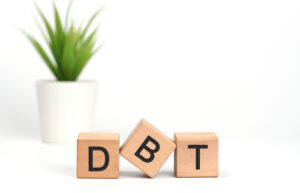What is self- harming behaviour?
Self-harm is when an individual poses harm on themselves on purpose. Often this is because they are feeling overwhelmed emotionally and by harming themselves, it helps to feel better. This experience is challenging for individuals and the people around them. People who self-harm may feel frightened, isolated, ashamed, and often overwhelmed. It is important to note that self-harm does not always mean that an individual wants to end their life.
Why do people self-harm?
- Some reasons why people may self-harm can include:
- Cope with emotions
- Express anger
- Relieve feelings of numbness or emptiness
- Gain a sense of control (body or emotions)
- Release tension
- Distract themself from emotional pain
- Cope with life challenges
- Express hatred towards themself
- Punish themselves
What Treatment is best for self-harming?
According to Hawton, Saunders and O’Connor (2012) self-harming and suicide is a major problem amongst adolescence. Asarnow and Mehlum (2019) study suggested there is evidence to support Dialectical behaviour therapy (DBT) as being well-established treatment for self-harm. Further, Clarke et al., 2019, went as far as saying that DBT is the first and only treatment meeting the threshold for well-established methods treating self-harming adolescence at high risk.
Dialectical Behavioural Therapy (DBT) is a multicomponent psychosocial intervention based on a model which views dysfunctional behaviour as either a consequence of dysregulated emotions or a maladaptive approach to emotion regulation (Lynch & Cheavens, 2008, Peprah & Argáez, 2017, Robins & Rosenthal, 2011).
DBT groups a collection of skills translated from behavioural research and other evidence-based treatments into four modules: mindfulness, interpersonal effectiveness, emotion regulation, and distress tolerance (Peprah & Argáez, 2017). Distress tolerance skills are strategies to control impulsive actions and to radically accept difficult life events (Peprah & Argáez, 2017). Dialectical behaviour therapy was initially developed for patients with borderline personality disorders (BPD), and it has demonstrated effectiveness in treating characteristics of emotion dysregulation, impulsivity, interpersonal difficulties (Peprah & Argáez, 2017)
DBT-based interventions have been used to treat diverse populations of mentally ill individuals (Peprah & Argáez, 2017). Emerging evidence suggests that DBT skills training reduces problems with emotions and is feasible to implement with a variety of mental disorders (Peprah & Argáez, 2017).
Recommendations for Intervention:
It is recommended that therapy involve Dialectical behaviour techniques to manage emotional dysregulation and impulsive urged to self-harm.
What therapy might look like for someone who is self-harming:
| Session 1 | Introduction session: rapport building, consent, confidentiality, and Psychologist role discussed |
| Session 2 | Safety plan/ Risk assessment / Means restriction |
| Session 3 | Identified therapy goals; worked collaboratively to construct therapy plan
Pre session measures (SDQ) used to measure the effectiveness of therapy and gather a baseline |
| Session 4 | Psychoeducation around self-harming behaviours |
| Session 5 | Exploration of Triggers |
| Session 6 | Exploration of maintaining factors: tools to manage. |
| Session 7 | Exploration of possible alternative behaviours (DBT skills) |
| Session 8 | Continued education around techniques (Grounding) and Distraction |
| Session 9 | Post measures and begin closing. Review safety plan. |
| Session 10 | Ending the session |
Disclaimer: If you or someone you know is in immediate danger, please call 000 for emergency services. You can also access 24/7 support through:
- Lifeline?Counselling services for anyone at any time.?Phone:?13 11 14
- Kids Helpline?Telephone and online counselling for young people aged 5-25.?Phone:?1800 551 800
- Beyond Blue?Information and referral for depression and anxiety.?Phone:?1300 224 636
- 13YARN?A 24-hour national crisis support line for mob who are feeling overwhelmed or having difficulty coping. They offer confidential, one-on-one yarning with Lifeline-trained Aboriginal and Torres Strait Islander crisis supporters. Phone:?13 92 76
- Parentline?Support, counselling, and education for parents. Phone:?1300 301 300
Ashley is dedicated to empowering her clie nts, equipping them with the resources they need to live fulfilling lives to their fullest potential.
nts, equipping them with the resources they need to live fulfilling lives to their fullest potential.
To make an appointment with Ashley try Online Booking. Alternatively, you can call Vision Psychology Brisbane on (07) 3088 5422.
References
American Psychiatric Association. (2013). Diagnostic and Statistical Manual of Mental Disorders. (5th Edition). Washington, DC.
Asarnow, J. R., & Mehlum, L. (2019). Practitioner review: Treatment for suicidal and self?harming adolescents–advances in suicide prevention care.?Journal of Child Psychology and Psychiatry,?60(10), 1046-1054.
Clarke, S., Allerhand, L. A., & Berk, M. S. (2019).?Recent advances in understanding and managing self-harm in adolescents.?F1000Research,?8.
Elices M, Soler J, Feliu-Soler A, Carmona C, Tiana T, Pascual JC, et al. Combining emotion regulation and mindfulness skills for preventing depression relapse: a randomized-controlled study. Borderline Personal Disord Emot Dysregul [Internet]. 2017 [cited 2017 Sep 26];4:13.
Hawton K, Saunders KE, O’Connor RC. Self-harm and suicide in adolescents. Lancet. 2012 Jun 23;379(9834):2373-82. doi: 10.1016/S0140-6736(12)60322-5. PMID: 22726518.
Lynch, T. R., & Cheavens, J. S. (2008). Dialectical behavior therapy for comorbid personality disorders.?Journal of Clinical Psychology,?64(2), 154-167.
Neacsiu AD, Eberle JW, Kramer R, Wiesmann T, Linehan MM. Dialectical behavior therapy skills for transdiagnostic emotion dysregulation: a pilot randomized controlled trial. Behav Res Ther. 2014 Aug;59:40–51.
Peprah K, Argáez C. Dialectical Behavioral Therapy for Adults with Mental Illness: A Review of Clinical Effectiveness and Guidelines [Internet]. Ottawa (ON): Canadian Agency for Drugs and Technologies in Health; 2017 Oct 20.?Available from: https://www.ncbi.nlm.nih.gov/books/NBK525629/
Robins, C. J., & Rosenthal, M. Z. (2011). Dialectical behavior therapy.?Acceptance and mindfulness in cognitive behavior therapy: Understanding and applying the new therapies, 164-192.

